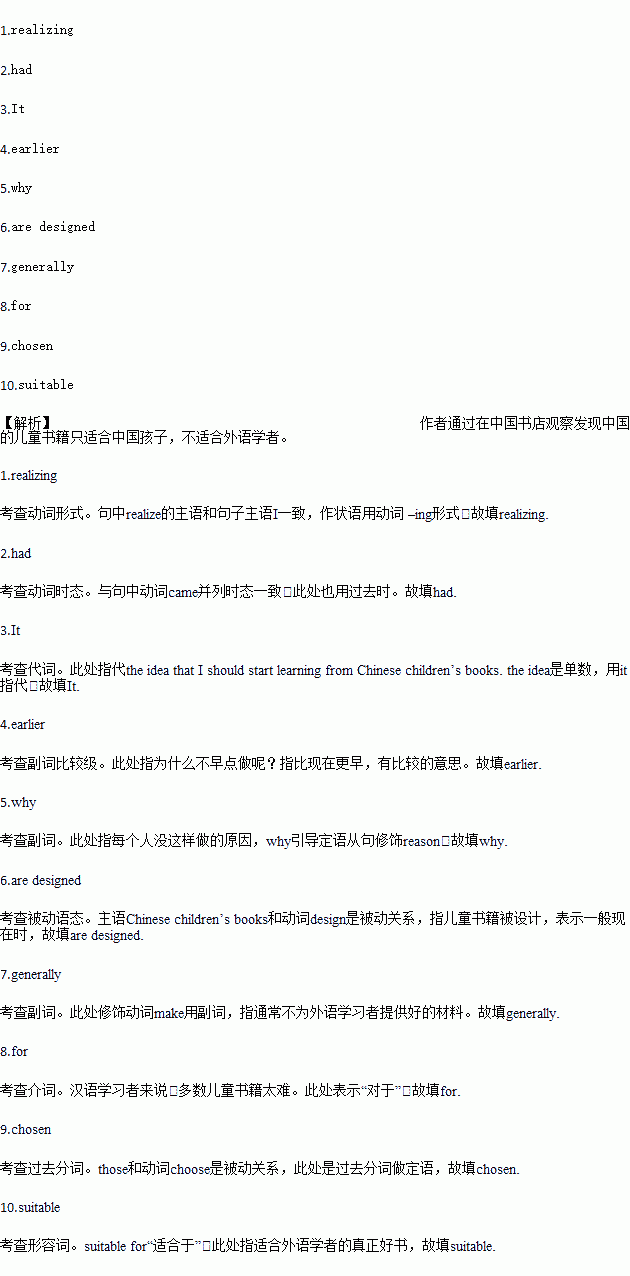题目内容
After I had been in China studying Chinese for about a year, I had exhausted my old textbook. I wanted more interesting material. One day I cam? upon a bookstore, and, 1. (realize) how cheap books in China were, 2. (have) the idea that I should start learning from Chinese children’s books. 3. was perfect and so obvious—why hadn’t I done this 4. (early)?
Then reality came as a shock. There was a very good reason 5. everyone wasn’t doing it already: Chinese children’s books 6. (design) for native Chinese kids, so they 7. (general) don’t make good material for foreign language learners.
Most Chinese children’s books are too hard 8. Chinese learners. It’ll be discouraging to read many books, especially those 9. (choose) at random, and all the “pinyin” is likely to be less helpful than you think. So, I do wish, one day, there are some really good books 10. (suit) for foreign learners out there in China’s bookstores.

